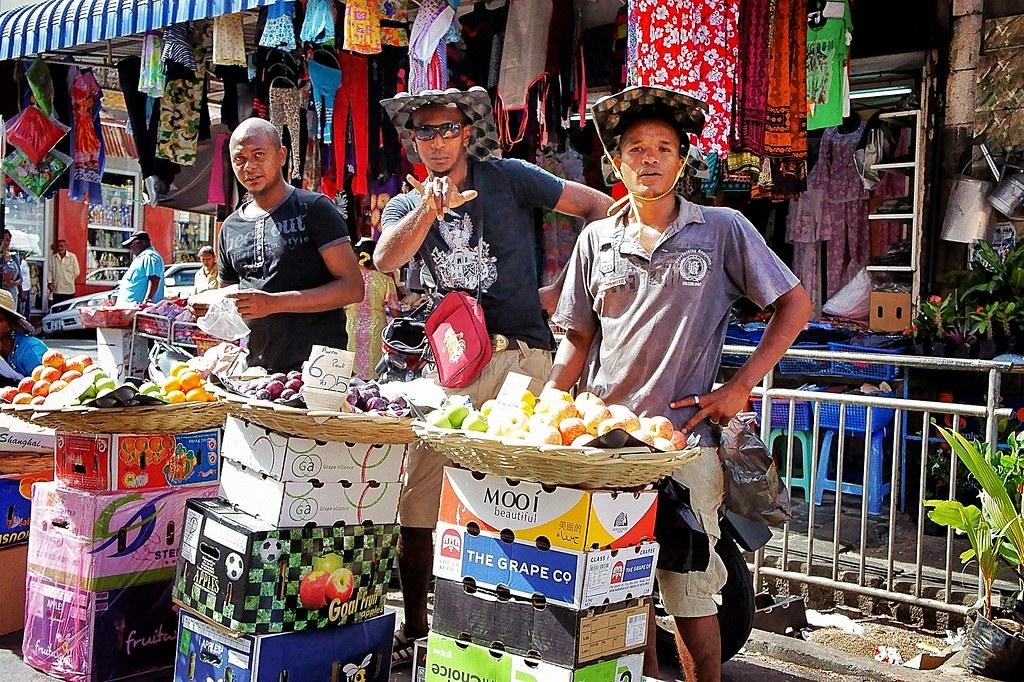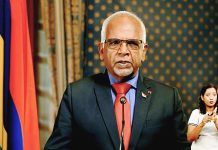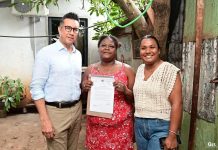Africa-Press – Mauritius. I was 11 years old when I first found out that Mauritius is in Africa.I had been in the country for nearly four years, having been born in the UK to two Mauritian parents, when my geography teacher dropped this bombshell. The concept of “African-ness” felt so foreign.
I knew so little of the continent and had only perceived it through the warped lens of the media, which portrayed it as dark, diseased and hopeless.
How could I have been African all this time and not even known it? This, to me, is where the Mauritian dilemma begins: a crisis of identity, language and belonging.
As I and my classmates learnt by rote in primary school in the capital Port Louis, Mauritius’ condensed three-hundred-year history consists of three successive periods of colonisation.
The Dutch were the first to settle on the tiny island, 2,000 km off Africa’s southeast coast and uninhabited but for the ill-fated dodo. Next were the French. Then came the British.
Through these periods, African, Indian and Chinese settlers were either brought over as indentured labour and slaves or came over to provide services for them. In 1968, the tiny island nation gained independence under our purported Father of the Nation Sir Seewoosagur Ramgoolam.
Fast-forward to today and Mauritius is seen as Africa’s little miracle nation.
It is one of the most ethnically-diverse nations in the world. Two-thirds of the population is composed of Indo-Mauritians, but there are also many minorities such as the Sino-Mauritians and Franco-Mauritians. By far the island’s largest minority at about 30% of the population, however, are the descendants of African slaves.
In a certain sense, Mauritius was an invention of colonisation and of Africa, only coming into existence when the Dutch brought slaves from as far as Senegal, Tanzania, Mozambique and Madagascar and left them stranded on Mauritian shores.
These groups would become the principal ancestors of a people that is now referred to as the “Creole” community, though concepts of kreolité today have developed meanings well beyond just the boundaries of race and African lineage.
The term Creole or Kreol thus refers to more than just groups of people, but the language that all Mauritians speak. Furthermore, the word’s usage continues to shift.
At the 2017 Kreol Festival, for example, Minister of National Solidarity Étienne Sinatambou proclaimed that we are all Creole. In doing so, he invoked the spirit of Mauricianisme, a national identity defined by the synthesis of the island’s many cultures and traditions.
As in all societies, language is central to Mauritians’ identity.
The smatterings of languages spoken on the island reflect the diversity of our people as well as our history. For example, we inherited English and French courtesy of colonialism.
We made English the official language of the National Assembly even though it is spoken by less than 1% of the population – in contrast, the Seychelles conduct its parliamentary proceedings in Seychellois Kreol – and we conduct most of our corporate affairs and media activities in French.
At the same time, primary school children are encouraged to study their ancestral languages. When I was at school in the early-2000s, we would be shepherded each week into our respective “Langue Orientale” classes where we would learn the likes of as Bhojpuri, Hindi, Tamil, Telegu, Marathi, Urdu, Arabic or Mandarin.
These classes reinforced our sense of communalism, our diasporic identities, and allegiances to imagined homelands – all distinctly un-African. During this time, the students of the Ti Creole community were given a free study period.
Back then, this seemed like a grave injustice to the rest of us, but in hindsight this deeply divisive tradition othered my Creole classmates. Kreol is our lingua franca and our nation’s single greatest unifying factor, yet it still struggles for respect from its own people.
As well as being separated from their fellow compatriots through how our languages are treated differently, the Creole people are also profoundly displaced from their own African roots.
The process of colonisation created feelings of dislocation among slaves and their descendants, while the systematic omission of Africa in Mauritius’ schools and its national identity ever since has exacerbated the sense of otherness in the Ti Creole minority.
These feelings have been compounded by the legacies of slavery and the community’s historic socio-economic marginalisation, not to mention the pre-independence ethnic violence that triggered an exodus of the Creole bourgeoisie.
Interesting, those who left mostly embarked on one-way trips, not 2,000 km west to the African mainland, but 7,000 km east to Australia. While they may consider themselves to be the first Mauritians then, the Creole population has typically lacked an African consciousness and sense of connection with their geographic origins. This pain, known as the “Creole Malaise”, is expressed in the sega song Reve Nou Ancetres (Our Ancestors’ dream) by Cassiya:
For More News And Analysis About Mauritius Follow Africa-Press







